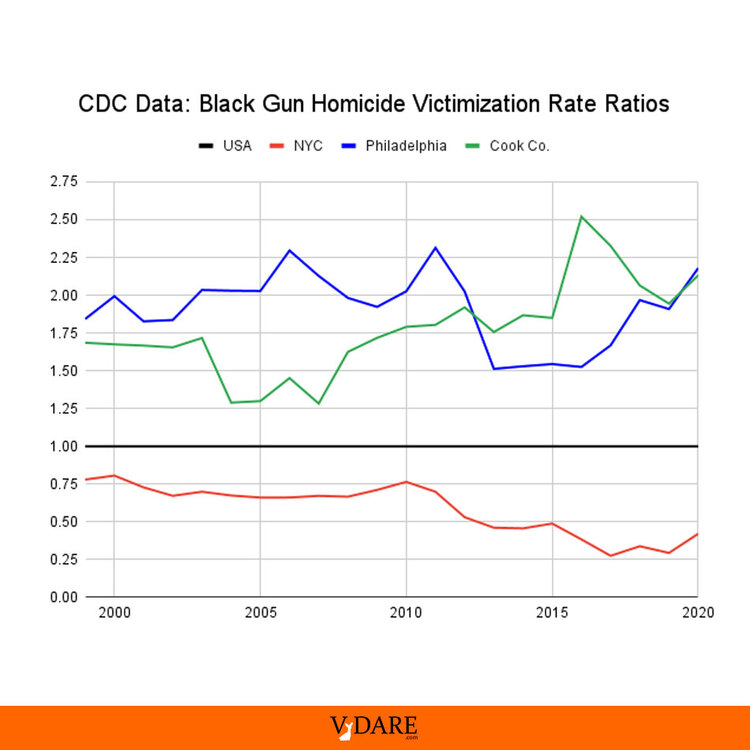
New York City And Murder: Did Stop And Frisk Work? SOMETHING Worked!
By Steve Sailer
02/17/2024
You’re right, Will. It’s just a massive coincidence that NYC murders began plummeting in 1994 when Giuliani was elected and appointed Bill Bratton as police chief, and kept doing so till 2016 when Bratton stepped down: pic.twitter.com/CsYIDnXcTL
— Samuel Johnson (@scjohnson90) February 16, 2024
The big fall in New York City’s homicide rate was in 1994-1998, Giuliani’s first five years in office. CDC data only goes back to 1999, but it shows that NYC continued to improve relative to the country as a whole. In 1999, the gun homicide rate in New York City was 31% higher than the national average. At New York City’s peak in 2017, it was 60% lower than the national average. (I use firearm homicides rather than total homicides to keep 9/11 from making a mess of the graph.)
When Bloomberg came into office in 2002, I figured that was as low as it could go and Bloomberg would be doing a good job just to keep it where it was. But then it dropped impressively under Bloomberg’s three terms, as the Democratic nominee for mayor lost five straight elections. Finally, de Blasio came into office in 2014, but the political atmosphere had changed so much that he felt compelled to make Giuliani’s first top cop Bill Bratton his police commissioner too.
There was a brief surge in killings 2015 when de Blasio tried to impose the Ferguson Effect on the NYPD after the death of Eric Garner. But the mayor lost the power struggle to Bratton and progress continued to be made until George Floyd.
Another way to look at it is the gun homicide victimization rate among blacks in NYC and other big urban areas relative to the national average:

New York City is currently 23% black, compared to 40% in Philadelphia, 13.6% nationally, and 24% in Cook Co., Illinois (Chicago and many suburbs). So, blacks die by gun homicide about 5 times as often per capita in Cook Co. as in New York City.
Which of the many crime-fighting techniques that NYC adopted was most effective? I don’t know. But, clearly, in sum, they worked.
